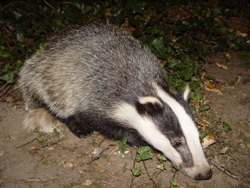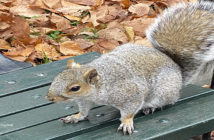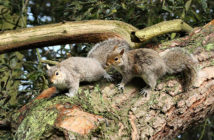The badger cull in England can go ahead. Thats the verdict given by Mr Justice Ousley today (Thursday 12 July) following a judicial review, instigated by the Badger Trust, into the Governments proposed cull, planned for this autumn.
“The plans for a cull of badgers in two pilot areas – West Gloucestershire and West Somerset – to prevent the spread of bovine TB in cattle, was challenged by the Badger Trust in the High Court in June.
|
The challenge to the ‘legality’ of the decision by Defra secretary Caroline Spelman to allow culling this autumn was on three grounds. These were that: it would not meet the strict legal test of ‘preventing the spread of the disease’, but may in fact increase it; that Defra”s cost impact assessment was ‘flawed’ and that Defra did not have the legal power to issue statutory guidance to the licensee, Natural England, to cull badgers. But all three arguments have been dismissed and, unsurprisingly, a Defra spokesman said the department was ‘pleased’ with the verdict and would work to ensure the pilot culls can now begin ‘as soon as is practical’. |
|
|
|
According to a report on the Farmers Guardian website, he said: “We are pleased with the judgement. No one wants to cull badgers but last year bovine TB led to the slaughter of over 26,000 cattle and to help eradicate the disease it needs to be tackled in badgers. We will continue to work with the farming industry so badger control in two pilot areas can start as soon as is practical.” However the fight might not be over just yet as the Badger Trust is considering an appeal. The Trust stated: “The Badger Trust will do everything in its power and within the law to minimise the harm caused by this thoroughly unnecessary killing.” It claimed that Mr Justice Ousley’s judgment demonstrates that the legislation in this area has not kept pace with developments in the understanding of how TB works, including the spread of disease due to perturbation, badger social behaviour or TB vaccination options. The perturbation effect is the description used for the likely spread of disease caused when badgers are disturbed. This effect was documented in the Randomised Badger Culling Trial conducted by Sir John Krebs. Basically it means that when badgers are suddenly in so much trauma, they move over larger areas and spread the disease to other areas. This is why during the judicial review the Badger Trust argued that the perturbation effect meant that culling would actually spread disease. But Defra successfully argued that measures had already been taken to reduce this risk, such as establishing barriers and buffers around culling areas, i.e. rivers, coast, motorways and cattle free areas. The trend of bovine TB incidence in England has been rising for 25 years and in 2010-11 the cost to the taxpayer due to the slaughter of 25,000 cattle, was £91 million. |
||




